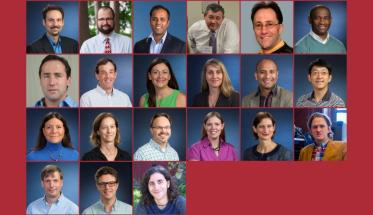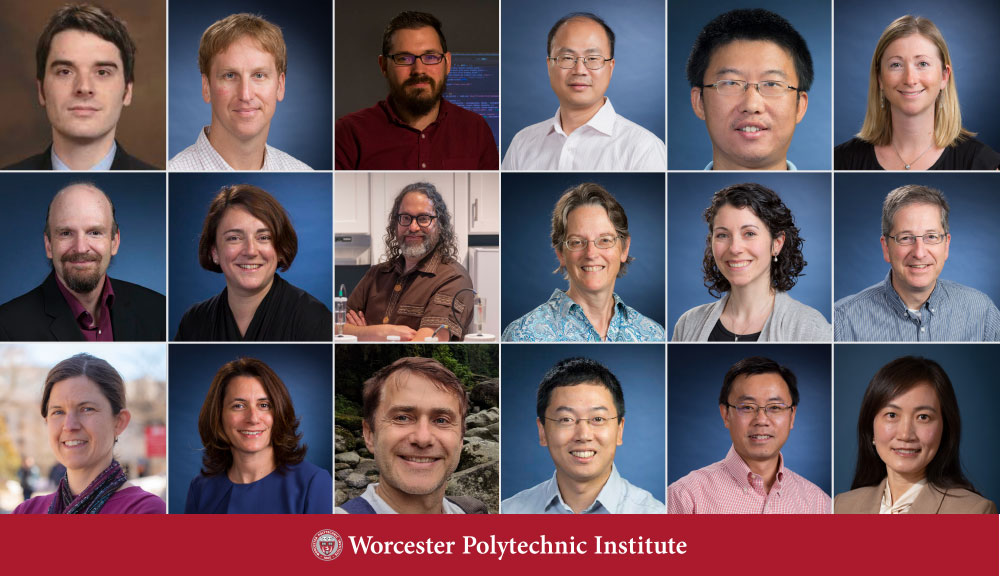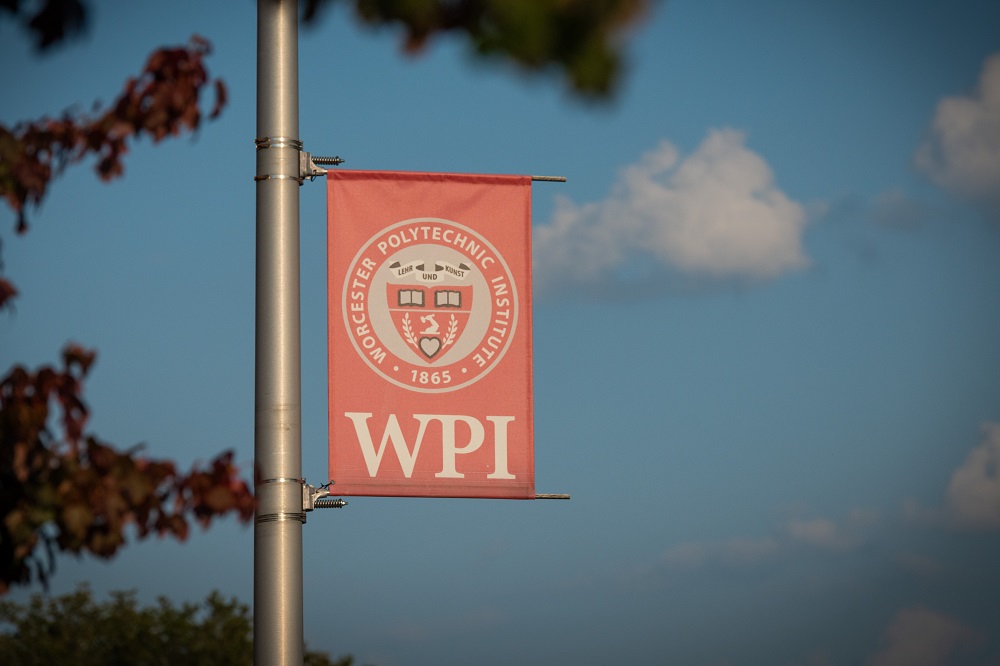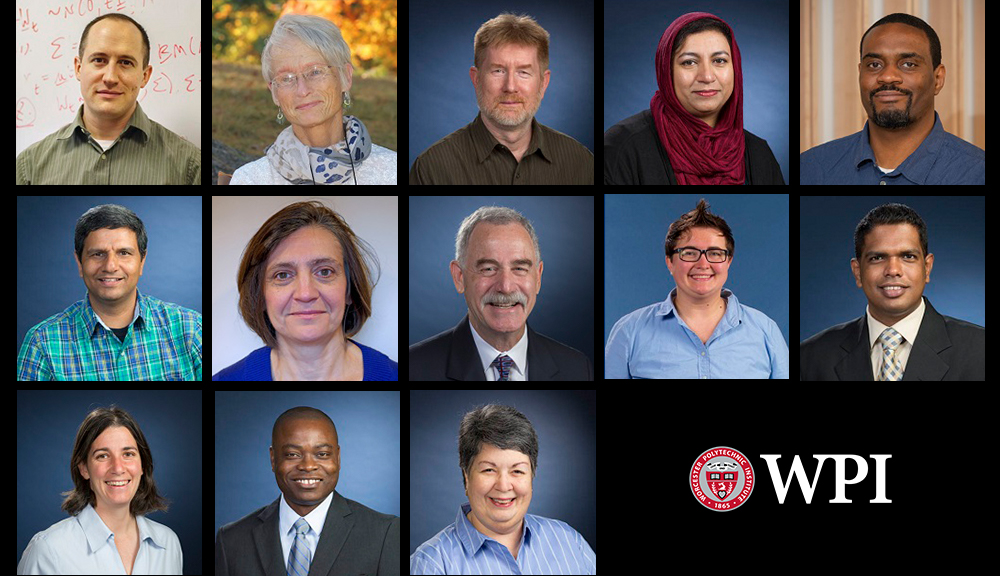Worcester Polytechnic Institute (WPI) today announced that 19 full-time faculty members have been promoted in academic rank; in addition, 11 faculty members, including nine of those who were promoted, have earned tenure.
“On behalf of the WPI Board of Trustees, I offer my sincere congratulations to this remarkable group of women and men,” said WPI President Laurie Leshin. “These are talented and accomplished educators, scholars, and researchers who are changing the world in positive ways and preparing our students to be tomorrow’s leaders. Through their work on campus and around the world, they are enhancing WPI’s international reputation and demonstrating, every day, why the university won a top rating from the Wall Street Journal for integrating in teaching and research.”
Added WPI Provost Bruce Bursten, “We are proud of our colleagues who are receiving their well-earned promotions. Their extraordinary accomplishments in teaching and scholarship provide amazing learning experiences for our students, and enhance the international impact of the Institute. Their passion and dedication as faculty members reinforce and provide distinctive opportunities that are the hallmark of the WPI experience.”
 Emmanuel Agu has been promoted to professor of computer science. A member of the WPI faculty since 2002, he is also affiliated with the Department of Electrical and Computer Engineering and the Bioinformatics, Computational Biology, and Interactive Media and Game Development programs. He serves as director of WPI’s Healthcare Delivery Institute and he conducts research on computer graphics, mobile computing, and wireless networks, with a particular focus on the use of smartphone apps to improve the quality and cost-effectiveness of healthcare—work that has been supported by nearly $8 million in federal and corporate funding. For example, he was a co-principal investigator on a project funded by the National Science Foundation to develop an app to help patients take a greater role in the management of diabetes; the app included novel technology for monitoring chronic foot ulcers. With a new $1.6 million award from the National Institutes of Health, he is leading an interdisciplinary team that is extending that technology to develop a new app that can help patients track a variety of chronic wound types. He holds a PhD in electrical and computer engineering from the University of Massachusetts Amherst.
Emmanuel Agu has been promoted to professor of computer science. A member of the WPI faculty since 2002, he is also affiliated with the Department of Electrical and Computer Engineering and the Bioinformatics, Computational Biology, and Interactive Media and Game Development programs. He serves as director of WPI’s Healthcare Delivery Institute and he conducts research on computer graphics, mobile computing, and wireless networks, with a particular focus on the use of smartphone apps to improve the quality and cost-effectiveness of healthcare—work that has been supported by nearly $8 million in federal and corporate funding. For example, he was a co-principal investigator on a project funded by the National Science Foundation to develop an app to help patients take a greater role in the management of diabetes; the app included novel technology for monitoring chronic foot ulcers. With a new $1.6 million award from the National Institutes of Health, he is leading an interdisciplinary team that is extending that technology to develop a new app that can help patients track a variety of chronic wound types. He holds a PhD in electrical and computer engineering from the University of Massachusetts Amherst.
 Ivon Arroyo has been awarded tenure and promoted to associate professor of social science and policy studies. Arroyo, who is also affiliated with WPI’s Learning Sciences and Technologies Program, conducts research on learning technologies for K-12 science, technology, engineering, and mathematics (STEM) education. Supported by $2.6 million in external funding, including a $587,000 CAREER Award from the National Science Foundation, and with a background in computer science and educational and cognitive psychology, she is developing systems that use embodied games and wearable devices to team math concepts and intelligent tutors that assess students’ math skills and detect their affect to help keep them engaged in learning. She joined WPI in 2012 after serving as a senior research scientist in the Computer Science Department at the University of Massachusetts Amherst, where she earned an EdD.
Ivon Arroyo has been awarded tenure and promoted to associate professor of social science and policy studies. Arroyo, who is also affiliated with WPI’s Learning Sciences and Technologies Program, conducts research on learning technologies for K-12 science, technology, engineering, and mathematics (STEM) education. Supported by $2.6 million in external funding, including a $587,000 CAREER Award from the National Science Foundation, and with a background in computer science and educational and cognitive psychology, she is developing systems that use embodied games and wearable devices to team math concepts and intelligent tutors that assess students’ math skills and detect their affect to help keep them engaged in learning. She joined WPI in 2012 after serving as a senior research scientist in the Computer Science Department at the University of Massachusetts Amherst, where she earned an EdD.
 Marja Bakermans has been promoted to associate teaching professor in Undergraduate Studies. With research interests in wildlife, ecology, environmental science, and conservation biology, she conducts research aimed at promoting the conservation of biodiversity by maintaining viable wildlife populations across the landscape. Some of her work focuses on the migratory patterns and habitats of birds, including the golden winged warbler and the whip-poor-will. She has been a major contributor to the university’s first-year Great Problems Seminar, helping develop three seminars and contributing to a soon-to-be-published book on project-based learning in the first year. A member of the WPI faculty since 2013, she earned a PhD in natural resources at Ohio State University.
Marja Bakermans has been promoted to associate teaching professor in Undergraduate Studies. With research interests in wildlife, ecology, environmental science, and conservation biology, she conducts research aimed at promoting the conservation of biodiversity by maintaining viable wildlife populations across the landscape. Some of her work focuses on the migratory patterns and habitats of birds, including the golden winged warbler and the whip-poor-will. She has been a major contributor to the university’s first-year Great Problems Seminar, helping develop three seminars and contributing to a soon-to-be-published book on project-based learning in the first year. A member of the WPI faculty since 2013, she earned a PhD in natural resources at Ohio State University.
 Scott Barton has been awarded tenure and promoted to associate professor of humanities and arts. Barton, who has affiliate appointments in the Robotics Engineering Program and the Social Science and Policy Studies Department, is director of the Music Perception and Robotics Laboratory. His research focuses on both understanding how the brain perceives and processes music and developing musical robots and robotic musical instruments. He is also a composer whose works, frequently played on his robotic instruments, have been performed widely. He joined the WPI faculty in 2012 after earning a PhD in composition and computer technologies at the University of Virginia, where he received the Graduate School of Arts and Sciences Dissertation Year Fellowship.
Scott Barton has been awarded tenure and promoted to associate professor of humanities and arts. Barton, who has affiliate appointments in the Robotics Engineering Program and the Social Science and Policy Studies Department, is director of the Music Perception and Robotics Laboratory. His research focuses on both understanding how the brain perceives and processes music and developing musical robots and robotic musical instruments. He is also a composer whose works, frequently played on his robotic instruments, have been performed widely. He joined the WPI faculty in 2012 after earning a PhD in composition and computer technologies at the University of Virginia, where he received the Graduate School of Arts and Sciences Dissertation Year Fellowship.
 Natalie Farny has been promoted to associate teaching professor of biology and biotechnology. She joined WPI in 2013 after serving as a postdoctoral researcher in molecular biology at the University of Massachusetts Medical School, where she studied the underlying molecular pathology of fragile X syndrome (FXS). Her current research focuses on the molecular biology of messenger RNA translational control, particularly how it relates to the role of protein synthesis in autism spectrum disorders and to the way cells respond to environmental stresses. With a personal interest in the emerging field of synthetic biology, she was instrumental in starting and advising WPI’s entries in the annual iGEM (International Genetically Engineered Machine) competition, a global synthetic biology program that challenges students to create biological tools that work within living cells to produce a desired product or process. Farny holds a PhD in biological and biomedical sciences from Harvard University.
Natalie Farny has been promoted to associate teaching professor of biology and biotechnology. She joined WPI in 2013 after serving as a postdoctoral researcher in molecular biology at the University of Massachusetts Medical School, where she studied the underlying molecular pathology of fragile X syndrome (FXS). Her current research focuses on the molecular biology of messenger RNA translational control, particularly how it relates to the role of protein synthesis in autism spectrum disorders and to the way cells respond to environmental stresses. With a personal interest in the emerging field of synthetic biology, she was instrumental in starting and advising WPI’s entries in the annual iGEM (International Genetically Engineered Machine) competition, a global synthetic biology program that challenges students to create biological tools that work within living cells to produce a desired product or process. Farny holds a PhD in biological and biomedical sciences from Harvard University.
 Dominic Golding has been promoted to teaching professor in the Interdisciplinary and Global Studies Division. He joined the WPI faculty in 2006 after serving in research capacities at the Ecotarium and the Marsh Institute at Clark University, where he conducted work on the social aspects of environmental risks, with a focus on the topics of risk communication, public trust, and vulnerability. Over the years he has advised more than 100 undergraduate Interactive Qualifying Projects in Worcester, Mass., and Worcester, England, and in Nantucket, Mass., London, Australia, New Zealand, Puerto Rico, and Switzerland. He has been director of WPI’s Nantucket Project Center since 2009 and director of the London Project Center since 2015 (he was co-advisor from 2009 to 2014). He has authored or co-authored six books and 18 book chapters. He earned a PhD in geography at Clark University.
Dominic Golding has been promoted to teaching professor in the Interdisciplinary and Global Studies Division. He joined the WPI faculty in 2006 after serving in research capacities at the Ecotarium and the Marsh Institute at Clark University, where he conducted work on the social aspects of environmental risks, with a focus on the topics of risk communication, public trust, and vulnerability. Over the years he has advised more than 100 undergraduate Interactive Qualifying Projects in Worcester, Mass., and Worcester, England, and in Nantucket, Mass., London, Australia, New Zealand, Puerto Rico, and Switzerland. He has been director of WPI’s Nantucket Project Center since 2009 and director of the London Project Center since 2015 (he was co-advisor from 2009 to 2014). He has authored or co-authored six books and 18 book chapters. He earned a PhD in geography at Clark University.
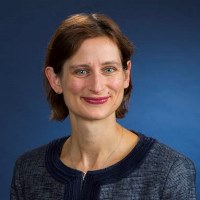 Renata Konrad has been awarded tenure and promoted to associate professor in the Foisie Business School. A member of the faculty since 2009, she conducts research at the intersection of operations research and health care, with a particular emphasis on improving the efficiency and lowering the cost of healthcare. A member of WPI’s Healthcare Delivery Institute, she has received funding the U.S. Department of Veterans Affairs and other agencies for such projects as characterizing episodes of care from health insurance claim records and examining the impact of physician incentives on patient outcomes. In some of her recent work, she has used operations research techniques to evaluate the success of programs that aim to eradicate human trafficking. She earned a PhD in education at Purdue University.
Renata Konrad has been awarded tenure and promoted to associate professor in the Foisie Business School. A member of the faculty since 2009, she conducts research at the intersection of operations research and health care, with a particular emphasis on improving the efficiency and lowering the cost of healthcare. A member of WPI’s Healthcare Delivery Institute, she has received funding the U.S. Department of Veterans Affairs and other agencies for such projects as characterizing episodes of care from health insurance claim records and examining the impact of physician incentives on patient outcomes. In some of her recent work, she has used operations research techniques to evaluate the success of programs that aim to eradicate human trafficking. She earned a PhD in education at Purdue University.
 Diana Lados has been promoted to professor of mechanical engineering. The Milton Prince Higgins II Distinguished Professor and the founder and director of the university’s Integrative Materials Design Center, she joined the WPI faculty in 2006 after earning a PhD in materials science and engineering at WPI and serving as a post-doctoral research scientist and research professor in WPI’s Metal Processing Institute. With a number of awards from several federal agencies, including a $525,000 CAREER Award from the National Science Foundation, she conducts fundamental research in the areas of materials and advanced manufacturing, with a special focus on design, evaluation, characterization, and optimization for fatigue, fatigue crack growth, thermo-mechanical fatigue, creep, and fracture resistance. Her work has earned her a long list of honors, including the inaugural Constance Tipper Silver Medal from the World Academy of Structural Integrity, the Silver Medal of the Society from ASM International, the Ralph R. Teetor Educational Award from SAE International, and, most recently, election as a fellow of ASM International.
Diana Lados has been promoted to professor of mechanical engineering. The Milton Prince Higgins II Distinguished Professor and the founder and director of the university’s Integrative Materials Design Center, she joined the WPI faculty in 2006 after earning a PhD in materials science and engineering at WPI and serving as a post-doctoral research scientist and research professor in WPI’s Metal Processing Institute. With a number of awards from several federal agencies, including a $525,000 CAREER Award from the National Science Foundation, she conducts fundamental research in the areas of materials and advanced manufacturing, with a special focus on design, evaluation, characterization, and optimization for fatigue, fatigue crack growth, thermo-mechanical fatigue, creep, and fracture resistance. Her work has earned her a long list of honors, including the inaugural Constance Tipper Silver Medal from the World Academy of Structural Integrity, the Silver Medal of the Society from ASM International, the Ralph R. Teetor Educational Award from SAE International, and, most recently, election as a fellow of ASM International.
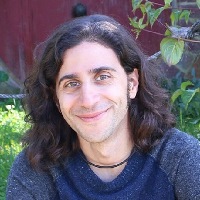 V.J. Manzo has been awarded tenure and promoted to associate professor of humanities and arts. A composer and guitarist with research interests in theory and composition, artificial intelligence, interactive music systems, and music cognition, Manzo is the author of three textbooks on music technology and co-author, with WPI music professor Frederick Bianchi, of the 2016 book Environmental Sound Artists: In Their Own Words. An affiliated faculty member in WPI’s Interactive Media and Game Development program and director of the London Humanities and Arts Project Center, he has redesigned several of the university’s music technology courses and helped direct the redesign of a music classroom into a music technology teaching lab. He joined WPI in 2012 after earning a PhD in music at Temple University.
V.J. Manzo has been awarded tenure and promoted to associate professor of humanities and arts. A composer and guitarist with research interests in theory and composition, artificial intelligence, interactive music systems, and music cognition, Manzo is the author of three textbooks on music technology and co-author, with WPI music professor Frederick Bianchi, of the 2016 book Environmental Sound Artists: In Their Own Words. An affiliated faculty member in WPI’s Interactive Media and Game Development program and director of the London Humanities and Arts Project Center, he has redesigned several of the university’s music technology courses and helped direct the redesign of a music classroom into a music technology teaching lab. He joined WPI in 2012 after earning a PhD in music at Temple University.
 Balaji Panchapakesan has been promoted to professor of mechanical engineering. Before joining the university in 2014, he was a professor of mechanical engineering at the University of Louisville. He was also previously on the faculty of the University of Delaware. The founder of the Small Systems Laboratory at WPI, he conducts research on multifunctional materials, devices, and systems at the macro-, micro-, meso- and nanoscales. With significant funding from several federal agencies, including a CAREER Award from the National Science Foundation, he has conducted research in such areas as novel nanocomposites, energy efficient materials and devices, stimuli responsive materials, photoconductive devices, and biomedical nanotechnology. He has published nearly 50 journal articles, including a 2016 paper in the journal Nanotechnology that described a device that can perform a “liquid biopsy” by capturing cancer cells from small blood samples to quickly detect early signs of metastasis, and a 2017 paper in Nature Scientific Reports on a novel electromechanical actuation technology based on thin layers of a nanocomposite material. He is a conference chair for the Society of Photographic Instrumentation Engineers’ 2018 Nanoengineering: Fabrication, Properties, Optics, and Devices conference. He earned a PhD in mechanical engineering at the University of Maryland, College Park.
Balaji Panchapakesan has been promoted to professor of mechanical engineering. Before joining the university in 2014, he was a professor of mechanical engineering at the University of Louisville. He was also previously on the faculty of the University of Delaware. The founder of the Small Systems Laboratory at WPI, he conducts research on multifunctional materials, devices, and systems at the macro-, micro-, meso- and nanoscales. With significant funding from several federal agencies, including a CAREER Award from the National Science Foundation, he has conducted research in such areas as novel nanocomposites, energy efficient materials and devices, stimuli responsive materials, photoconductive devices, and biomedical nanotechnology. He has published nearly 50 journal articles, including a 2016 paper in the journal Nanotechnology that described a device that can perform a “liquid biopsy” by capturing cancer cells from small blood samples to quickly detect early signs of metastasis, and a 2017 paper in Nature Scientific Reports on a novel electromechanical actuation technology based on thin layers of a nanocomposite material. He is a conference chair for the Society of Photographic Instrumentation Engineers’ 2018 Nanoengineering: Fabrication, Properties, Optics, and Devices conference. He earned a PhD in mechanical engineering at the University of Maryland, College Park.
 George Pins has been promoted to professor of biomedical engineering. A faculty member at WPI since 2000, his research focuses on the development of bioengineered scaffolds to enhance the regeneration of damaged tissues and organs. Specifically, his lab takes cues from how natural tissue grows and heals itself to develop three-dimensional constructs that emulate native tissue architecture and cellular microenvironments. With more than $7 million in funding from the National Institutes of Health, the Department of Defense, the Whitaker Foundation, and industrial partners, his lab is working on microfabricated basement membrane structures that could help produce better bioengineered skin substitutes and using novel biopolymer microthreads to deliver stem cells and promote skeletal muscle regeneration. With Glenn Gaudette, professor of biomedical engineering, Pins co-founded the company VitaThreads to commercialize the microthread innovation. In 2004 he received the WPI Board of Trustees’ Award for Outstanding Academic Advising; he is the founding faculty advisor for the WPI chapter of the Alpha Eta Mu Beta, the national biomedical engineering honor society. He received a PhD in biomedical engineering from Rutgers University.
George Pins has been promoted to professor of biomedical engineering. A faculty member at WPI since 2000, his research focuses on the development of bioengineered scaffolds to enhance the regeneration of damaged tissues and organs. Specifically, his lab takes cues from how natural tissue grows and heals itself to develop three-dimensional constructs that emulate native tissue architecture and cellular microenvironments. With more than $7 million in funding from the National Institutes of Health, the Department of Defense, the Whitaker Foundation, and industrial partners, his lab is working on microfabricated basement membrane structures that could help produce better bioengineered skin substitutes and using novel biopolymer microthreads to deliver stem cells and promote skeletal muscle regeneration. With Glenn Gaudette, professor of biomedical engineering, Pins co-founded the company VitaThreads to commercialize the microthread innovation. In 2004 he received the WPI Board of Trustees’ Award for Outstanding Academic Advising; he is the founding faculty advisor for the WPI chapter of the Alpha Eta Mu Beta, the national biomedical engineering honor society. He received a PhD in biomedical engineering from Rutgers University.
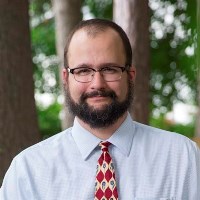 Aaron Sakulich has been awarded tenure and promoted to associate professor of civil and environmental engineering. He joined the WPI faculty in 2012 after completing a postdoctoral appointment at the University of Michigan and working as a guest researcher at the National Institute of Standards and Technologies under the National Research Council’s Research Associateship Program. His research focuses on developing more durable materials for use in infrastructure to lower the need for maintenance, improve safety, and reduce environmental impact. One ongoing project involves protecting rebar in reinforced concrete from corrosion by using a compound derived from cinnamon. He is Co-Director of WPI’s Panama Project Center and has served as a faculty advisor at the Morocco Project Center. He holds a PhD in materials science and engineering from Drexel University.
Aaron Sakulich has been awarded tenure and promoted to associate professor of civil and environmental engineering. He joined the WPI faculty in 2012 after completing a postdoctoral appointment at the University of Michigan and working as a guest researcher at the National Institute of Standards and Technologies under the National Research Council’s Research Associateship Program. His research focuses on developing more durable materials for use in infrastructure to lower the need for maintenance, improve safety, and reduce environmental impact. One ongoing project involves protecting rebar in reinforced concrete from corrosion by using a compound derived from cinnamon. He is Co-Director of WPI’s Panama Project Center and has served as a faculty advisor at the Morocco Project Center. He holds a PhD in materials science and engineering from Drexel University.
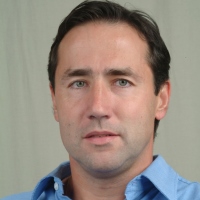 Gabor Sarkozy, professor of computer science, has been awarded tenure. He first joined the WPI faculty in 1996 and was promoted to Associate Professor in 2001. He later returned to his native Hungary, where he became a senior research fellow at the Hungarian Academy of Sciences while also serving as an Affiliated Associate Professor at WPI and an advisor at the Budapest Project Center, which he founded. He rejoined the faculty full-time in 2015 as a Professor. With expertise in graph theory (particularly the study of the structure of very large graphs), discrete mathematics, and theoretical computer science, he has published more than 70 journal articles, including one with Paul Erdos and 21 with Abel laureate Endre Szemeredi. His work has been supported by the National Science Foundation and the Hungarian Scientific Research Fund (OTKA). He holds a PhD in computer science from Rutgers University.
Gabor Sarkozy, professor of computer science, has been awarded tenure. He first joined the WPI faculty in 1996 and was promoted to Associate Professor in 2001. He later returned to his native Hungary, where he became a senior research fellow at the Hungarian Academy of Sciences while also serving as an Affiliated Associate Professor at WPI and an advisor at the Budapest Project Center, which he founded. He rejoined the faculty full-time in 2015 as a Professor. With expertise in graph theory (particularly the study of the structure of very large graphs), discrete mathematics, and theoretical computer science, he has published more than 70 journal articles, including one with Paul Erdos and 21 with Abel laureate Endre Szemeredi. His work has been supported by the National Science Foundation and the Hungarian Scientific Research Fund (OTKA). He holds a PhD in computer science from Rutgers University.
 Jagan Srinivasan has been awarded tenure and promoted to associate professor of biology and biotechnology. A neurobiologist, he uses the roundworm Caenorhabditis elegans, or C. elegans, as a model system to study how the brain receives and processes sensory information to mediate social behaviors. With a recent $1.6 million award from the National Institutes of Health, he is using C. elegans to study gender differences in the decline of the sense of smell, which can be an early warning sign for neurodegenerative diseases like Alzheimer’s. He joined WPI in 2012 after serving as a postdoctoral researcher in neurobiology at California Institute of Technology, where he isolated and characterized a novel family of small molecules that mediate social communication in worms, molecules that are potential therapeutic targets against parasitic nematodes. He holds a PhD in genetics from the Max Planck Institute for Developmental Biology in Germany.
Jagan Srinivasan has been awarded tenure and promoted to associate professor of biology and biotechnology. A neurobiologist, he uses the roundworm Caenorhabditis elegans, or C. elegans, as a model system to study how the brain receives and processes sensory information to mediate social behaviors. With a recent $1.6 million award from the National Institutes of Health, he is using C. elegans to study gender differences in the decline of the sense of smell, which can be an early warning sign for neurodegenerative diseases like Alzheimer’s. He joined WPI in 2012 after serving as a postdoctoral researcher in neurobiology at California Institute of Technology, where he isolated and characterized a novel family of small molecules that mediate social communication in worms, molecules that are potential therapeutic targets against parasitic nematodes. He holds a PhD in genetics from the Max Planck Institute for Developmental Biology in Germany.
Izabela Stroe has been promoted to associate teaching professor of physics. She joined W PI in 2008 after completing a three-year postdoctoral research associate appointment at the National High Magnetic Field Laboratory at Los Alamos National Laboratory. With research interests in experimental biological physics and condensed matter physics, she has conducted studies on proteins dynamics and hydration and early detection of Alzheimer’s disease, among other areas. Her work on early Alzheimer’s earned her the Kalenian Award, the university’s top prize recognizing commercialization potential for inventions, in 2012. She has received over $800,000 in external funding for educational initiatives, including an award from the National Research Council to develop a curriculum for WPI’s Nuclear Science and Engineering program and an award from the National Science Foundation’s S-STEM program to engage low-income, academically talented, underrepresented students in local community colleges in research on renewable energy materials and provide them with scholarships to transfer to WPI to complete bachelor’s degrees. She is also the director of WPI’s Masters of Science in Physics for Educators program. She holds a PhD in physics from Clark University.
PI in 2008 after completing a three-year postdoctoral research associate appointment at the National High Magnetic Field Laboratory at Los Alamos National Laboratory. With research interests in experimental biological physics and condensed matter physics, she has conducted studies on proteins dynamics and hydration and early detection of Alzheimer’s disease, among other areas. Her work on early Alzheimer’s earned her the Kalenian Award, the university’s top prize recognizing commercialization potential for inventions, in 2012. She has received over $800,000 in external funding for educational initiatives, including an award from the National Research Council to develop a curriculum for WPI’s Nuclear Science and Engineering program and an award from the National Science Foundation’s S-STEM program to engage low-income, academically talented, underrepresented students in local community colleges in research on renewable energy materials and provide them with scholarships to transfer to WPI to complete bachelor’s degrees. She is also the director of WPI’s Masters of Science in Physics for Educators program. She holds a PhD in physics from Clark University.
 Stephan Sturm has been awarded tenure and promoted to associate professor of mathematical sciences. He joined WPI in after completing a postdoctoral appointment in the operations research and financial engineering program at Princeton University, where he taught asset pricing and risk management classes at the Bendheim Center for Finance. An applied mathematician, he specializes in the field of financial mathematics and engineering, with his current work focusing on problems involving modeling with stochastic volatility and the implied volatility surface, delegated portfolio optimization, and the role played by incentive schemes paid to fund managers. He is affiliated with WPI’s actuarial mathematics program and has helped renew the course offerings for the financial mathematics master’s program. He earned a PhD in mathematics at the Technical University of Berlin.
Stephan Sturm has been awarded tenure and promoted to associate professor of mathematical sciences. He joined WPI in after completing a postdoctoral appointment in the operations research and financial engineering program at Princeton University, where he taught asset pricing and risk management classes at the Bendheim Center for Finance. An applied mathematician, he specializes in the field of financial mathematics and engineering, with his current work focusing on problems involving modeling with stochastic volatility and the implied volatility surface, delegated portfolio optimization, and the role played by incentive schemes paid to fund managers. He is affiliated with WPI’s actuarial mathematics program and has helped renew the course offerings for the financial mathematics master’s program. He earned a PhD in mathematics at the Technical University of Berlin.
 Michael Timko has been awarded tenure and promoted to associate professor of chemical engineering. He joined WPI in 2012 after working as principal chemical engineer in the Center for Aero-Thermodynamics at Aerodyne Research Inc. His research focuses on the environmental and engineering aspects of clean energy technologies, with a specific emphasis on liquid transportation fuels. He received a $500,000 CAREER Award from the National Science Foundation (NSF) to explore the use of solid acids to improve the economic viability of deriving liquid fuels from lignocellulosic biomass (the inedible parts of plants). One of the founders of the WPI Energy Research Group, he co-organized the first New England Energy Research Forum, held at WPI in June 2017, and is associate editor of the Journal of Supercritical Fluids and a director of the Catalysis and Reaction Engineering Division of the American Institute of Chemical Engineers. He received a PhD in in chemical engineering from MIT.
Michael Timko has been awarded tenure and promoted to associate professor of chemical engineering. He joined WPI in 2012 after working as principal chemical engineer in the Center for Aero-Thermodynamics at Aerodyne Research Inc. His research focuses on the environmental and engineering aspects of clean energy technologies, with a specific emphasis on liquid transportation fuels. He received a $500,000 CAREER Award from the National Science Foundation (NSF) to explore the use of solid acids to improve the economic viability of deriving liquid fuels from lignocellulosic biomass (the inedible parts of plants). One of the founders of the WPI Energy Research Group, he co-organized the first New England Energy Research Forum, held at WPI in June 2017, and is associate editor of the Journal of Supercritical Fluids and a director of the Catalysis and Reaction Engineering Division of the American Institute of Chemical Engineers. He received a PhD in in chemical engineering from MIT.
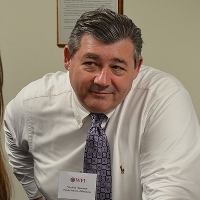 Walter Towner has been promoted to associate teaching professor in the Foisie Business School. He first taught at WPI in the late 1990s, and rejoined the faculty in 2008. With extensive training and industrial experience in engineering, operations, technology, business, and entrepreneurship, he has developed a niche in the intersection between business and manufacturing and production. In addition to teaching and advising projects in the areas of operations and industrial engineering within the business school, he has designed and taught courses for WPI’s Manufacturing Engineering Program in its Corporate and Professional Education Division. In 2015 he co-founded the Center for Innovative Manufacturing Solutions with a $300,000 award from the MassDevelopment Manufacturing Innovation Grants program. The center provides consulting service and expertise to help small- to medium-size manufacturers grow their businesses. He earned a PhD in manufacturing engineering from WPI and an MBA from Babson College.
Walter Towner has been promoted to associate teaching professor in the Foisie Business School. He first taught at WPI in the late 1990s, and rejoined the faculty in 2008. With extensive training and industrial experience in engineering, operations, technology, business, and entrepreneurship, he has developed a niche in the intersection between business and manufacturing and production. In addition to teaching and advising projects in the areas of operations and industrial engineering within the business school, he has designed and taught courses for WPI’s Manufacturing Engineering Program in its Corporate and Professional Education Division. In 2015 he co-founded the Center for Innovative Manufacturing Solutions with a $300,000 award from the MassDevelopment Manufacturing Innovation Grants program. The center provides consulting service and expertise to help small- to medium-size manufacturers grow their businesses. He earned a PhD in manufacturing engineering from WPI and an MBA from Babson College.
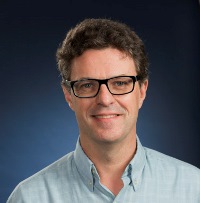 Steven Van Dessel, an associate professor of civil and environmental engineering since 2015, has been awarded tenure. He joined WPI in 2013 to help grow the Architectural Engineering program, which he has directed since 2016, and to help lead it through its successful accreditation by the Accreditation Board for Engineering and Technology (ABET). The program has grown substantially since its launch. His research and teaching focus on sustainable building design and building technology, with a special focus on the study of adaptive building envelope systems. One of his goals is to develop smart materials that can alter their thermal properties in response to changing outdoor conditions, to conserve energy and optimize comfort. Before coming to WPI, he was an associate professor at Ghent University in Belgium, an associate professor of architecture at the University of Nottingham in the UK, and an assistant professor at RPI. He earned an interdisciplinary PhD in material sciences and engineering/architecture at the University of Florida.
Steven Van Dessel, an associate professor of civil and environmental engineering since 2015, has been awarded tenure. He joined WPI in 2013 to help grow the Architectural Engineering program, which he has directed since 2016, and to help lead it through its successful accreditation by the Accreditation Board for Engineering and Technology (ABET). The program has grown substantially since its launch. His research and teaching focus on sustainable building design and building technology, with a special focus on the study of adaptive building envelope systems. One of his goals is to develop smart materials that can alter their thermal properties in response to changing outdoor conditions, to conserve energy and optimize comfort. Before coming to WPI, he was an associate professor at Ghent University in Belgium, an associate professor of architecture at the University of Nottingham in the UK, and an assistant professor at RPI. He earned an interdisciplinary PhD in material sciences and engineering/architecture at the University of Florida.
 Alexander Wyglinski has been promoted to professor of electrical and computer engineering. A member of the WPI faculty since 2007, Wyglinski is the director of the Wireless Innovation Laboratory, where he conducts research in such areas as wireless communications, cognitive radio, connected and autonomous vehicles, software-defined radio, and dynamic spectrum access—work that has won him international recognition and sustained grant support from multiple federal agencies and companies. A senior member of the Institute of Electrical and Electronics Engineers (IEEE), Wyglinski is currently president of the IEEE Vehicular Technology Society. He served as general co-chair for the 2013 IEEE Vehicular Networking Conference and the 82nd IEEE Vehicular Technology Conference, and he has co-organized the IEEE VTS Connected and Autonomous Vehicles Summer School at WPI since 2016. He is the director of the MITRE-WPI Collaboratory and the MITRE-Bedford Project Center. Wyglinski earned a PhD in electrical engineering at McGill University.
Alexander Wyglinski has been promoted to professor of electrical and computer engineering. A member of the WPI faculty since 2007, Wyglinski is the director of the Wireless Innovation Laboratory, where he conducts research in such areas as wireless communications, cognitive radio, connected and autonomous vehicles, software-defined radio, and dynamic spectrum access—work that has won him international recognition and sustained grant support from multiple federal agencies and companies. A senior member of the Institute of Electrical and Electronics Engineers (IEEE), Wyglinski is currently president of the IEEE Vehicular Technology Society. He served as general co-chair for the 2013 IEEE Vehicular Networking Conference and the 82nd IEEE Vehicular Technology Conference, and he has co-organized the IEEE VTS Connected and Autonomous Vehicles Summer School at WPI since 2016. He is the director of the MITRE-WPI Collaboratory and the MITRE-Bedford Project Center. Wyglinski earned a PhD in electrical engineering at McGill University.
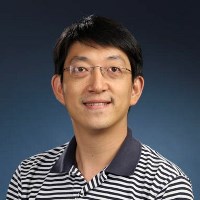 Jian Zou has been awarded tenure and promoted to associate professor of mathematical sciences. Prior to joining WPI in 2014 he was an assistant professor at Indiana University-Purdue University Indianapolis. A core faculty member in WPI’s Data Science and Bioinformatics and Computational Biology program, his research focuses on financial time series and spatial statistics with applications in epidemiology, public health, and climate change. For example, he develops novel spatiotemporal models that provide early and accurate detection of disease outbreaks, while his work in high-frequency financial data has tackled problems with high dimensionality, currently a hot topic in statistics. He has received support for this work from the National Science Foundation, the National Institutes of Health, and the Robert Wood Johnson Foundation, among other organizations. He earned a PhD in statistics from the University of Connecticut.
Jian Zou has been awarded tenure and promoted to associate professor of mathematical sciences. Prior to joining WPI in 2014 he was an assistant professor at Indiana University-Purdue University Indianapolis. A core faculty member in WPI’s Data Science and Bioinformatics and Computational Biology program, his research focuses on financial time series and spatial statistics with applications in epidemiology, public health, and climate change. For example, he develops novel spatiotemporal models that provide early and accurate detection of disease outbreaks, while his work in high-frequency financial data has tackled problems with high dimensionality, currently a hot topic in statistics. He has received support for this work from the National Science Foundation, the National Institutes of Health, and the Robert Wood Johnson Foundation, among other organizations. He earned a PhD in statistics from the University of Connecticut.
